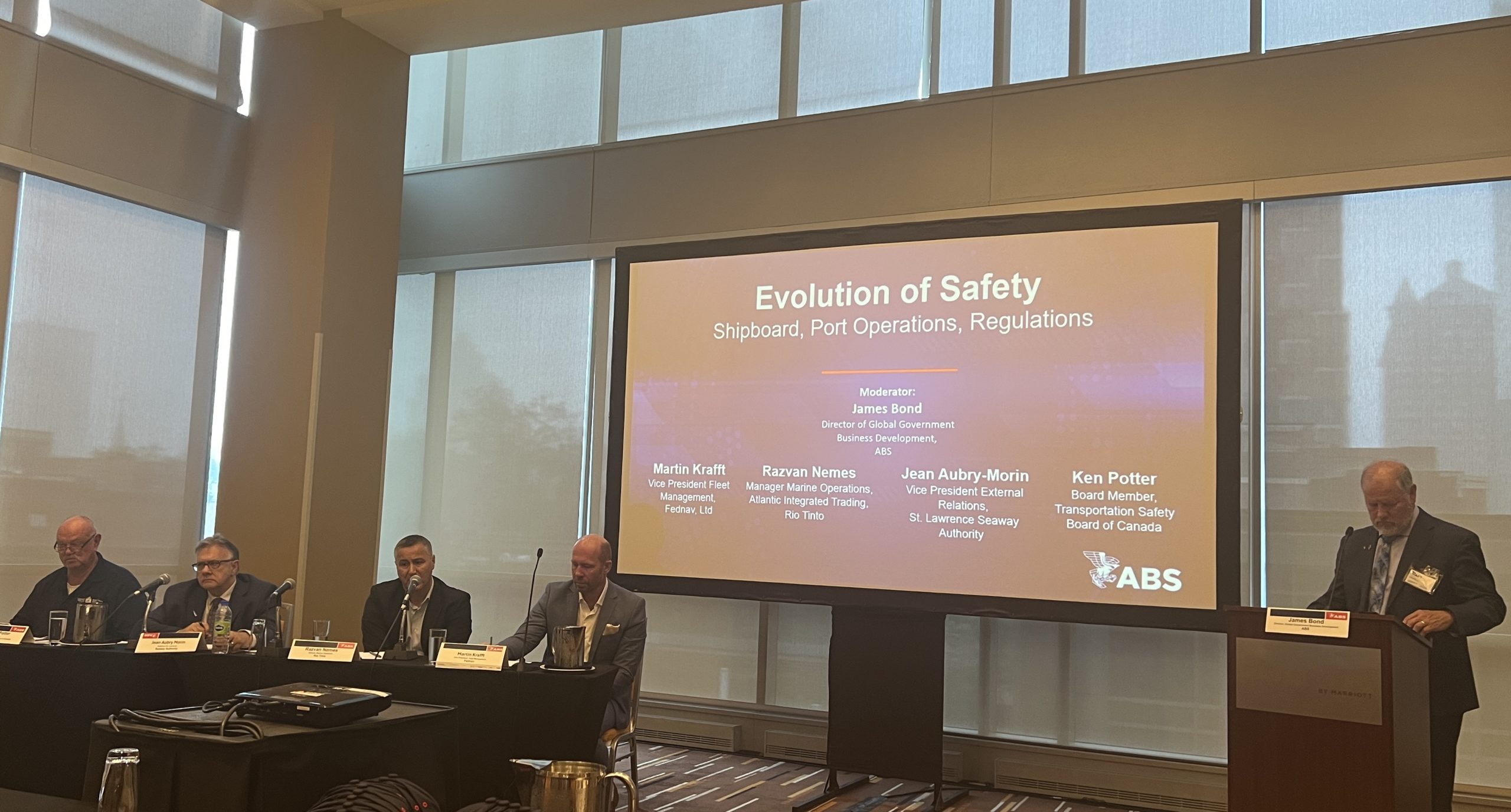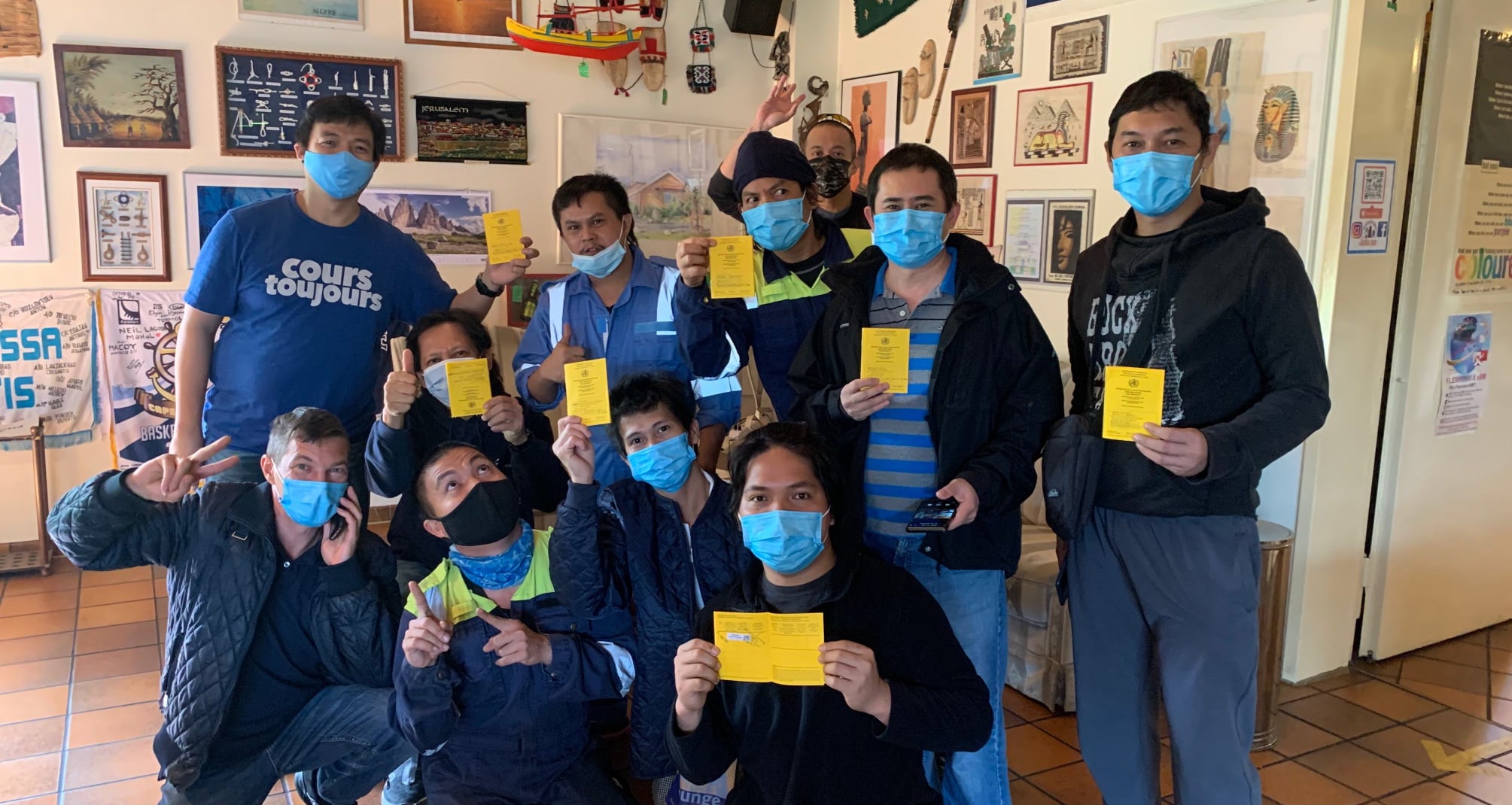On June 20, the Courtyard Marriott in downtown Montreal hosted the ABS Seminar titled “The Next Generation of Maritime Safety.” The event brought together key industry figures to discuss the evolving landscape of maritime safety and the challenges and opportunities it presents.
The seminar began with a warm welcome by Roy Bleiberg, Vice President of North America Business Development at ABS. He set the tone for the event by emphasizing the need to exceed minimum safety standards. Bleiberg stressed the importance of a safety-first mindset, not only on the field but also in everyday office settings, underscoring that safety is an integral part of every aspect of the industry.
Isabelle Brassard, Executive Vice President and Chief Operating Officer of Fednav Ltd., delivered the keynote address. Brassard, who had a rich history in the mining industry before coming to maritime, highlighted the critical importance of safety, stating unequivocally that there is no competitive advantage when it comes to safety. She shared insights from her 22 years of experience at Rio Tinto, reflecting on how Fednav has evolved its safety protocols. Brassard noted that diversity is crucial as it brings new perspectives to safety challenges and helps push the industry forward.
Brassard identified several key challenges the industry faces. First, she addressed the growing demand for Environmental, Social, and Governance (ESG) transparency. She uses a personal gauge to measure decisions, asking herself whether she would put her own children in a given situation or if she would be proud to see it reported in the media. This approach, she believes, helps ensure that the company remains focused on ethical practices.
Geopolitics is another significant challenge, requiring agility and strong decision-making frameworks to navigate complex global landscapes. Brassard recounted a particularly tough decision made on December 23, when the crew faced an extreme situation. Despite the psychological stress it caused, she highlighted the importance of learning from such experiences to make better decisions in the future.
The EU Emissions Trading System (ETS) was discussed as a challengin administrative task, yet necessary for regulatory compliance. Brassard also emphasized the critical issue of decarbonization, pointing out the prevalence of “green-washing” and the need for genuine action and education about environmental initiatives. Finally, she reiterated that safety is the foundation of efficiency and quality in maritime operations.
A panel discussion titled “Safety Yesterday, Today, and Tomorrow” featured prominent figures such as Martin Krafft, James Bond, Razvan Nemes, Jean Aubry-Morin, and Ken Potter. The panel delved into the evolution of safety in the maritime industry, focusing on personnel safety, port infrastructure, and operational safety. Krafft highlighted the difference between responsible ship operators and transactional owners who view the crew more as commodities. Bond stressed that the industry should compete on service quality rather than safety. Nemes spoke about the industry’s progress towards zero harm and the necessity of going beyond mere compliance. Aubry-Morin shared success stories from the St. Lawrence Seaway Authority, emphasizing the importance of a robust safety culture. Potter discussed regulatory oversight and the need for effective delegation to ensure safety.
The seminar also explored the unintended consequences of new technologies, particularly the need for robust cybersecurity measures. Sherif Ghobrial, Jean Fahmy, Mark Keneford, Paul Topping, and Harshil Patil provided insights into digital transformation, cyber threats, and the adoption of sustainable fuels. Fahmy discussed the vast amount of data collected from ships and the need for better collaboration across the industry. Keneford highlighted the global adoption of various fuel technologies. Topping discussed the challenges of biofuels and the geopolitical risks associated with new fuel sources. Patil emphasized the importance working closely with equipment manufacturers to enhance safety.
In his closing remarks, Roy Bleiberg reiterated the industry’s commitment to surpassing minimum safety standards. He emphasized that everyone should aim higher to ensure the safety and well-being of all maritime personnel. The ABS Seminar provided a comprehensive overview of the current and future state of maritime safety, highlighting the importance of continuous improvement and collaboration across the industry.





